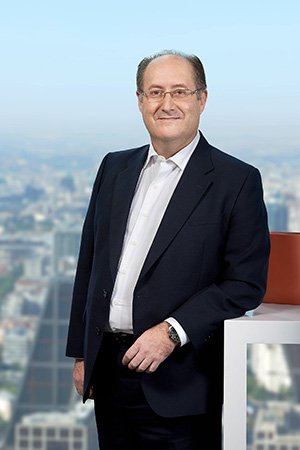

Interview with Salvador García Claros
Salvador García Claros, Director of Development and Innovation of the chemical area of Cepsa
Cepsa
Cepsa is upgrading its Puente Mayorga Chemical Plant. What are your plans there?
This upgrade is making Puente Mayorga the first linear alkyl benzene (LAB) facility in the world to replace hydrofluoric (HF) technology with the Detal process, resulting in a more efficient and sustainable operation. The revamping process allows it to increase the plant’s production capacity up to 260,000 tons (a 25% increase), with the aim of supplying the growing consumption of emerging economies in Africa. Besides that, the plant will also have new loading and unloading units and a new control room. This project will be completed in 2020.
Can you explain what the Detal process is and what the benefits are?
Detal stands for Detergent Alkylation and represents a pioneering technology in the sector for making Linear Alkylbenzene. It was developed by Cepsa and Universal Oil Product (UOP) and our chemical plant in Canada was the first in the world to use this process in 1995. Since then, 85% of new LAB capacity added use of this technology.
Detal brought important improvements, namely the lowering of raw material consumption and quality. However, the most obvious benefits of Detal derived from the replacement of hydrofluoric acid by a solid catalyst which led to a considerable process simplification since the handling of HF entails a lot of implications. To get rid of HF means no need of equipments such as acid regenerator, stripper, settlers, associated piping, special metallurgy, disposal of acid wastes, etc.
The latest evolution of the technology (Detal-Flex 2 Phenyl) incorporates a new generation of the most efficient and versatile catalysts capable of producing different grades of commercial LAB at the same plant (high and low 2-phenyl), with total flexibility, depending on the demand. This versatility allows to meet the specific demands of each client. Detal technology, in addition to improving the quality of the product, increases the efficiency of the plant and reduces its emissions, since it requires lower consumption of natural gas and electricity.
You simultaneously install the YET (Yield, Energy and Throughput) system? What is this?
The YET system, an artificial intelligence program and the application of Industry 4.0 technologies (machine learning, big data and advanced analytics), optimizes processes and improve the plant’s energy efficiency. This initiative aims to improve energy efficiency, loading and performance of processes.
The first pilot project was developed on phenol line 3 at our Palos Chemical Plant, where it increased production by 2.5%, which will help to produce over 5,500 tons of phenol per year. We are currently working to install it to our chemical plants in Spain (Palos de la Frontera and San Roque), Brazil (Salvador de Bahia), and China (Shanghai), and at our refineries.
Cepsa is already world leader in the production of LAB. How will the development of the new technology to produce it benefit your clients?
In fact, this project consolidates our world leadership in LAB production (15% market share), reaching a total production at our plants of approximately 600,000 tons/year. As I mentioned before, we will produce all commercial LAB grades (high and low 2-phenyl) in the same installation to meet the specific demands of each client.
We are increasing the LAB production at Puente Mayorga plant with the aim of supplying the growing consumption of emerging economies in Africa. Cepsa estimates that between now and 2035, the demand for LAB in these countries will grow by 5% annually.
Cepsa visited SEPAWA Congress this October, what are your impressions and how do you see this event in the industry?
SEPAWA became an unmissable forum for the detergent industry. The conference provides an opportunity for networking and allow for knowing how our sector is evolving: trends, technologies, products and, on top of that, the challenges faced by the surfactant industry.



